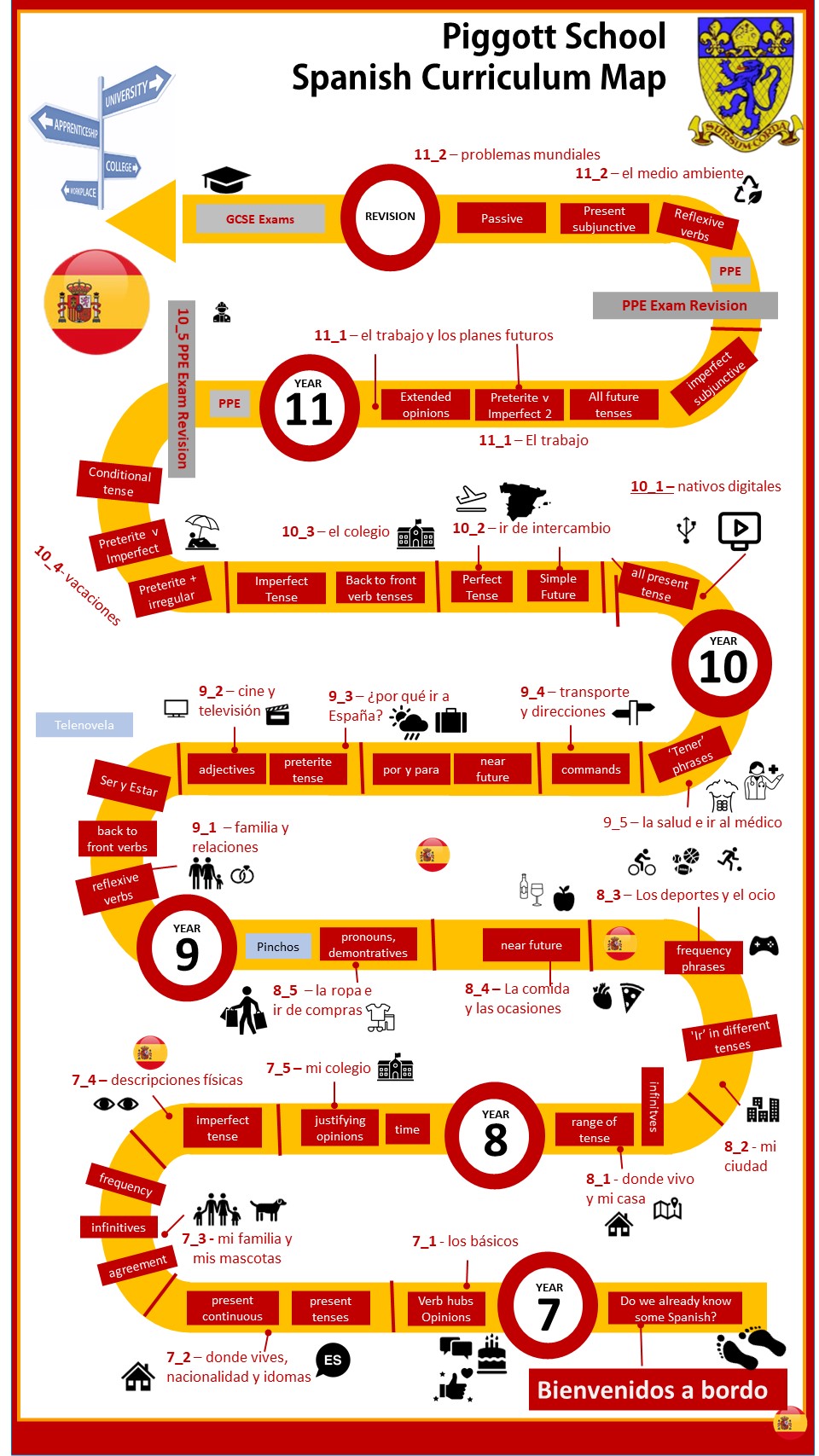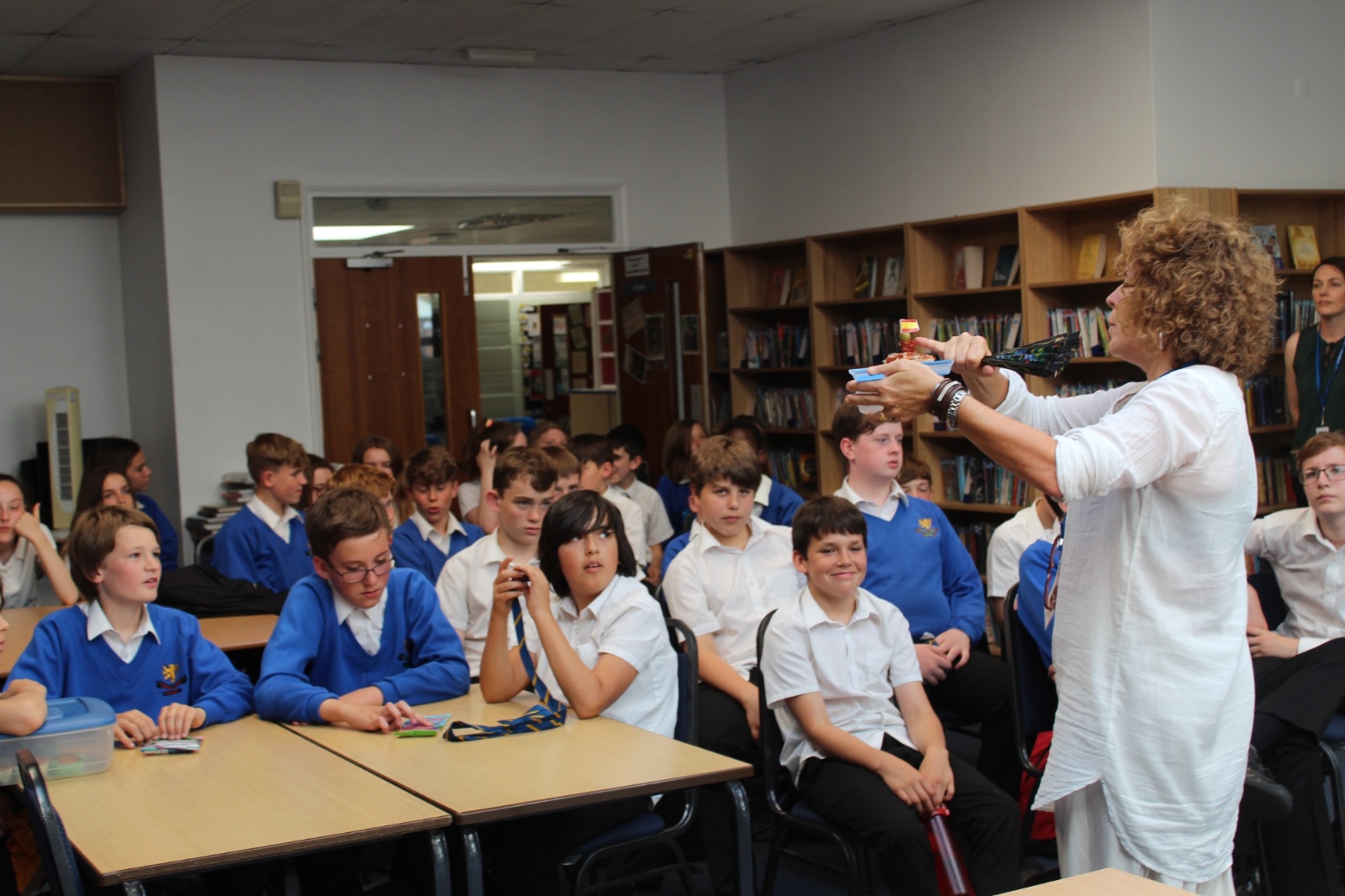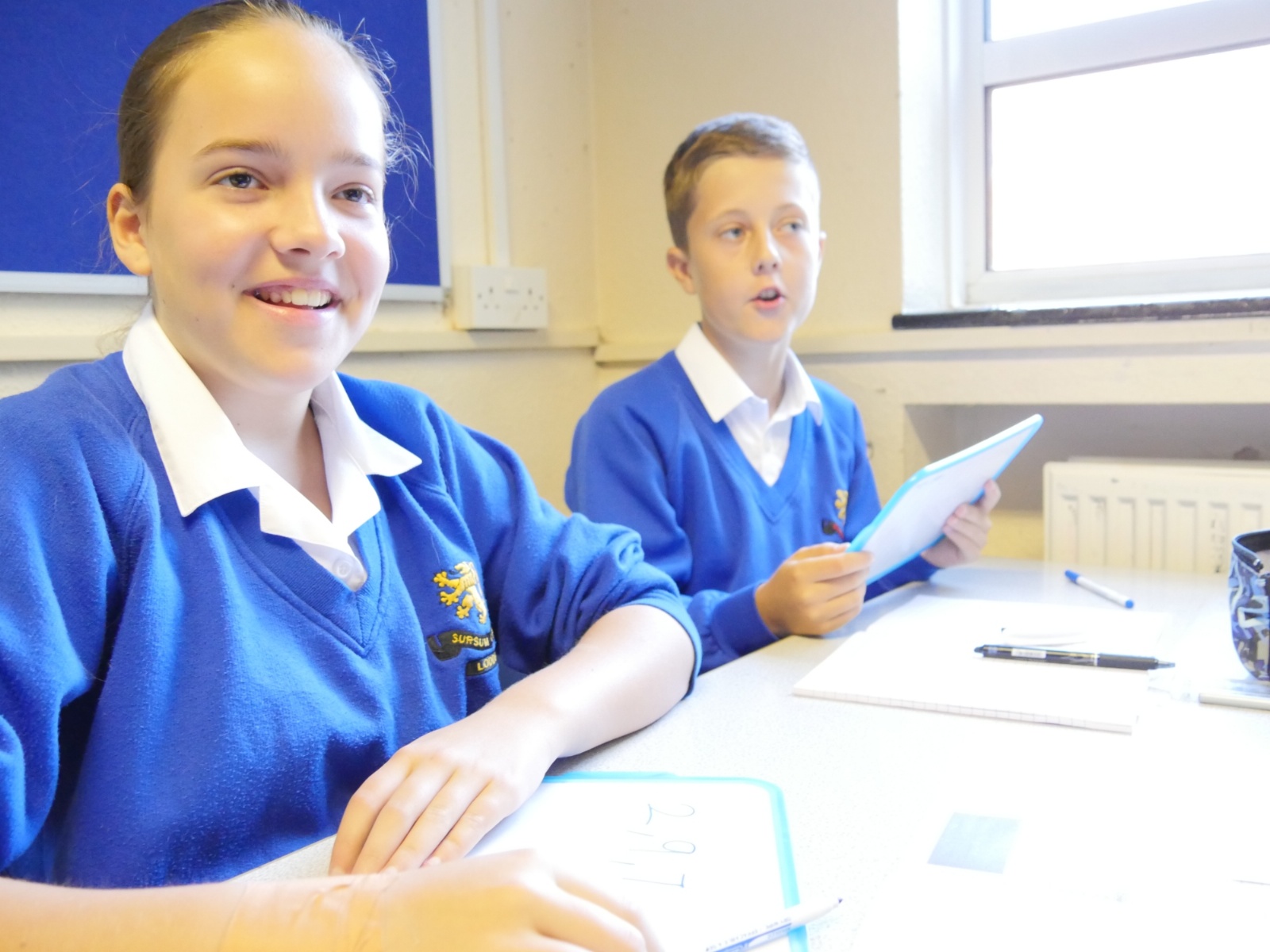Spanish
The overarching Mission Statement for MFL is as follows:
Live, Love, Learn Languages
Our mission is to….
Increase young people’s cultural awareness and linguistic competence, thereby enabling them to view the world with an open and enquiring mind and to develop the transferable skills required to compete in an ever-changing, competitive world.
The Piggott School Spanish department sets students on the path to bilingualism allowing students to see life through other people’s eyes. We provide the cultural prism through which students can develop a range of transferrable skills, giving each learner the opportunity to become a fluent speaker when they leave the Piggott School.
Curriculum Aims
- To equip learners with the skills required to live, work in a Spanish speaking country
- To foster an attitude of lifelong language learning
- To instill a curiosity for other languages and cultures
- Develop transferrable skills and to give learners the steppingstone to other opportunities, linked to learning Spanish
Curriculum Intent
Our curriculum intent is founded on the notion of ‘languages for all’. Everybody can learn a foreign language and in an ever changing and ever polarizing world, having a knowledge of another language, especially one spoken by 437 million people, is essential.
Spanish at the Piggott School equips all learners with the basics of the language and promotes students to explore the differences and similarities with their own language. Basing our lessons on Spanish speaking countries, all students learn about how cultural idiosyncrasies create unique learning opportunities through the medium of food, music, sport, customs, festivals etc.
Learning Spanish enables all students to move away from the idea of monolingualism and towards a bilingual approach to life allowing them to be able to live and work in a Spanish speaking country one day. Many of the scenarios that we teach are linked to our successful Spanish Exchange that takes place when students are in Y10
Alongside improving their language skills, learners develop their confidence in a range of other transferrable areas. They will become more confident in speaking and explaining, their memory skills will improve, they must become resilient and enhance their analytical and problems solving skills to create unique ways of looking at the world through the prism of Spanish.
How is Spanish taught at the Piggott School?
- Spanish is taught to every half the year in Y7 and Y8 and then to students who choose the subject for GCSE / Alevel
- Each student receives 3 hours per fortnight in Y7 which increases to 4 hours in years 8-10. Y11 Students receive 5 hours per fortnight
- AQA A Level Spanish is part of the A Level provision at The Piggott School and allows students to become fluent speakers of the language.
- We have adopted an approach that focuses on Extensive Processing Instruction (EPI), which repeatedly exposes the learner to language in a number of different contexts and scenarios, thus “input flooding” and improving confidence.
- The new Spanish curriculum is sequenced in a way that allows students to recycle and deepen the key concepts of Spanish grammar and language over the 5 years towards GCSE and beyond into A Level
- The curriculum provides a rich range of topics, all designed to give learners practical ways to apply their learning in Spanish speaking contexts..
- Grammar is built into all modules and develops students’ awareness over the years with learners in Y11 able to use up to 10 verb tenses, different idiomatic phrases, be creative with the Spanish language and have the springboard from which to launch into A level.
- In the compulsory phase of Spanish in Y7 and Y8, students study the basics of Spanish, building up their confidence of grammar and use of three different moods (past, present and future) The different topics are designed to develop and recycle language and continually offer opportunities to see cultural and linguistic differences.
- Students have access to a wide range of professional resources, such as the Viva Edexcel GCSE and AQA A Level Spanish textbooks, which also provide many supporting documents and resources online. In addition to this, they are able to use a number of online platforms to improve their language, such as Quizlet and Memrise for vocabulary, and Thisislanguage, Language-gym, Languagesonline and Duolingo for extra grammar and skills practice.


.JPG)
.JPG)
.JPG)
.JPG)





.JPG)